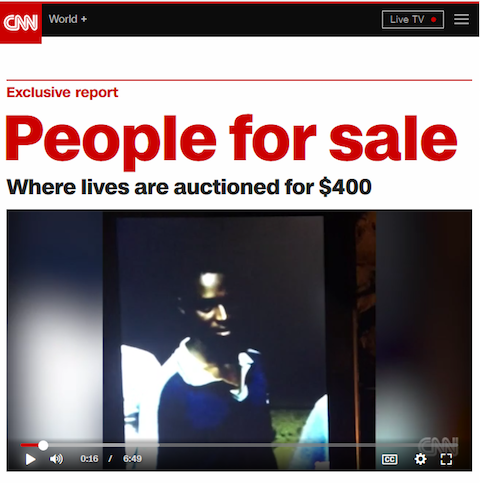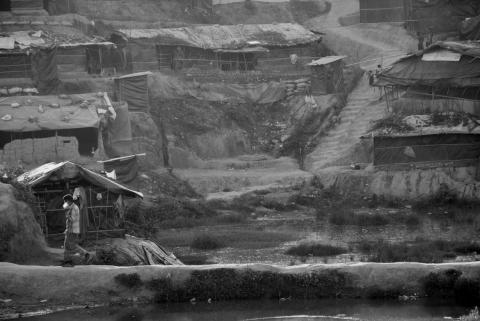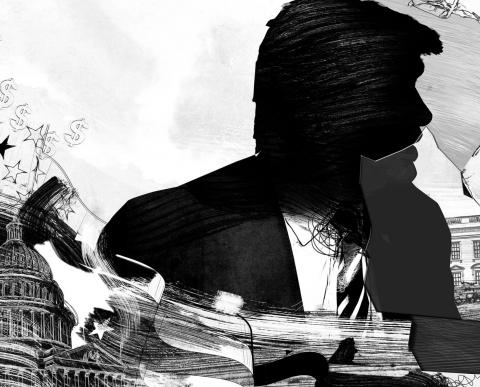Media Erase NATO Role in Bringing Slave Markets to Libya
FAIR - Fairness & Accuracy in Reporting

The war ended in October 2011. US and European aircraft attacked Qadhafi’s convoy, and he was brutally murdered by extremist rebels. The government soon dissolved.
In the six years since, Libya has been roiled by chaos and bloodshed. Multiple would-be governments are competing for control of the oil-rich country, and in some areas there is still no functioning central authority. Many thousands of people have died, although the true numbers are impossible to verify.










Spread the word